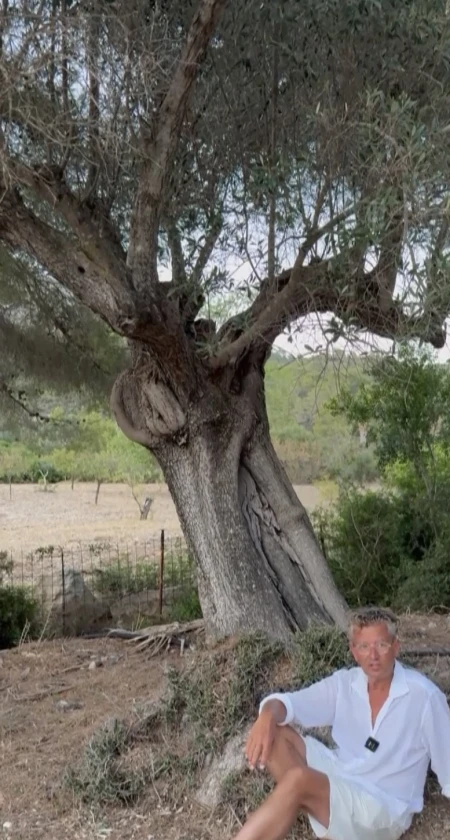
I keep getting asked the same question: Can you plant olives in the north? In Berlin, Hamburg, in Germany? Because it's getting warmer due to climate change? And can we soon produce olive oil in Berlin?
No, you can't.
Even if Hamburg, Berlin and Bochum eventually become as warm as the south – which is not impossible – the olive won't bear fruit. At least not fruit from which oil can be extracted.
So basically: olive oil production north of the Alps – won't work, can't work, won't happen. One hundred percent.
The misunderstanding begins where people believe warmth is enough. But that's not true. It's not about degrees Celsius – it's about light. About the lux value. And there's simply too little of that in the north. Even in summer. Even with climate change.
Olives are light-hungry – we say in botany: heliophilic. They need the brightest light we have on this earth. And interestingly, this isn't found at the equator – too many clouds – but in the Mediterranean region. Blue sky, for months. Here you get the brightest light. And that's not a poetic image – that's a lux value.
You can see that the olive is light-hungry (it needs over 3000 hours of sunshine per year) from its leaf color: silver-gray. Gray-leaved plants have adapted over millennia to precisely these light conditions. Gray-leaved plants are the light-starved ones.
The olive blooms in April. By then, everything is already bright here in the south. Then it's off with growth, photosynthesis, fruit set. And ripening doesn't happen until late autumn – in November. That's exactly when the light clock has long since run out in the north. So full fruit development never occurs.
And then: Five months of darkness. Too little light. Too little energy. That's plant cruelty. North of the Alps, there will hardly be any happy, content olives. And olive oil certainly not.
Even at Lake Garda, olive cultivation is already difficult. The olives there are, so to speak, the last outposts. And that's still south of the Alps.
The olive is not alone with this problem. Lavender is the best example. Also gray-leaved, also sun-hungry – and that's why it never really thrives in Germany. In Hamburg it lasts three, four years, then that's it.
Recently I was led to a "lavender field" in the Lüneburg Heath – a sad sight. And no comparison to what blooms in Provence, where lavender gets the lux value it needs.
It's the same with lavender as with the olive: their successful establishment in the north fails due to fundamental site laws.
Olives are also pollinated – not just by wind, but by specialized wild bees that don't exist in the north. The interplay of light, temperature, air movement, insects – all of this is a highly specialized system. Grown over millennia. You can't simply copy that just because it's getting a bit warmer in the north.
With wine, however, it works! Because wine rests. For months. Wine is deciduous. Can handle frost, as long as it gets to rest afterwards. But because it's deciduous, dormant and generally less light-hungry, it can cope with the lux values in the north.
The olive is evergreen, so it constantly needs energy – meaning light. Lots of light. Always. Without pause, without winter sleep.
Theoretically, you can plant an olive tree. But it won't bear fruit. At least not fruit from which oil can be extracted. And that's plant cruelty to me. The olive is a positive, wonderful tree, full of symbolism – but it simply doesn't thrive with us. Not even in pots. They just don't feel comfortable because they lack what made them great: The light.
Olive oil north of the Alps? Remains wishful thinking.